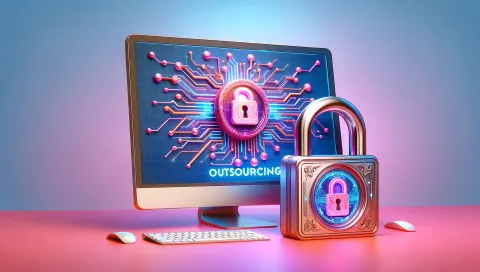We've put together a list of things to think about before you start outsourcing software development processes. They are necessary to ensure the safety and security of your projects when delegating them to offshore teams. Here are some of them:
- Offshoring is safe when the headquarter of the potential team is in Canada, the USA, or the same jurisdiction as the client's.
Location is important. Financial and legal aspects of work matter, especially in the early stages of outsourcing relationships. It would be helpful if the chosen offshore company had not only a local presence, a registration, or an office in your country but also its headquarters there. It would be useful if an outsourcing partner could be able to provide you with the possibility of sending its specialists on-site. - Offshoring becomes safer when you can meet executives in person. It is important to find out if the company has C-level specialists locally or close to your area. They can be the CEO, CTO, or Director of Engineering, who drive strategy, operations, and technology aspects.
If there is a need to discuss any strategic planning, organizational, or technical matters, you will be able to meet your partner company's C-level executives in person. - Offshoring is also safe because remote workers won't be able to copy the product, as they know little about the North American way of doing business.
- Offshoring is safer if the outsourcing company is headquartered in North American jurisdictions. Some offshore companies register a mailbox or just a virtual address. It is best to make sure that the vendor has an actual headquarter and local workers, not just a virtual presence, in your country.
Once you select the vendor, the last important step is to prepare the draft of the contract. Plan the contract negotiation strategy in such a way that the priorities of the required services are properly sorted out. The contract should help prevent any future complications. Once all the suggested changes are incorporated into the final draft, if there are any, you can then sign the contract.

